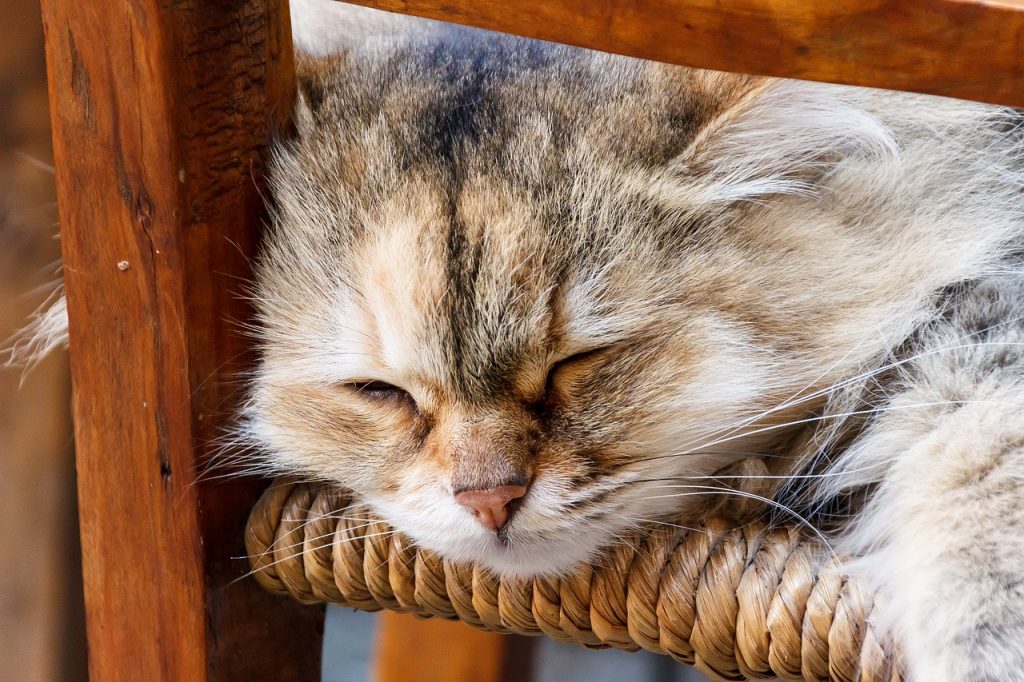Close To La Flemme – Feeling Lazy In French Posted by John Bauer on Sep 12, 2018 in Vocabulary
Do you ever feel like you just need a fat morning? That lazy feeling of les tâches ménagères et les devoirs (chores and homework) piling up while you struggle to find motivation is pretty common, but knowing how to express it in French can be difficult.
Un jour (one day), I was sitting in class before le professeur (the professor) had arrived and wanted to spark up a simple conversation to help pass the time. I turned to mon camarade de classe (my classmate) and started talking:
Les devoirs n’étaient pas trop difficile cette fois.
Ouais, mais je ne les ai pas encore fait.
Pourquoi ?
J’ai la flemme.The homework wasn’t too difficult.
Yeah, but I haven’t done it yet.
Why?
Too lazy.
I was immediately confused by the word la flemme. En fait (in fact), when mon camarade de classe used the new word, I didn’t even hear the right word. All of this became clear when I tried to ask them to explain l’expression (the expression).
Tu as la flamme ? Comme le feu ?
You have the flame? Like fire?
After a good minute of laughter, mon camarade de classe explained l’expression in a way I could understand:
Non, non, non. Ça veut dire que je suis trop faignant !
Ah d’accord ! Alors pourquoi la flamme ?
Ce n’est pas la flamme, c’est la flemme !No, no, no. It just means I am too lazy.
Ah alright! So why the flame?
It’s not the flame, it’s the flemge!
Realizing la faute (the mistake), I was too embarrassed to push for a clearer answer, but I made sure to practice saying the two words over and over une fois (once) I was at home.
La flemme – Laziness
La flamme – Flame
The similar sounding words mean very different things and more importantly, sound very different to les francophones (French speakers). I was still curious how having flemme could mean being lazy, and decided to look up l’origine de l’expression (the origin of the expression).
La flemme dates to at least the le Moyen Âge (the Middle Ages), with traces all the way back in le XIIIe siècle (the 13th century). Historically, la flemme was a reference to le glaire (mucus) or le phlegme (phlegme). To understand why, we have to look at la théorie des humeurs (Humorism), an ancient form of Western medicine where illnesses and temperaments could all explained by les saisons (the seasons), les éléments (the elements), or having too much of something in your body.
According to cette théorie, laziness is caused by having too much of le phlegme!
Alors pourquoi la flemme en français ?
So why la flemme in French?
Le mot et l’expression first entered le français via le mot italien (the Italian word), la flemma. An interesting thing to note is how le phlegme was already a word, but strictly medical like the English word, phlegm. Cependant (however), le phlegme is masculin, while le mot italien is feminin, leading to la flemme being feminine.
To make things more confusing, its spelling en français has changed over the centuries. Le mot was first written as la flème before changing to its modern variant la flemme.
Phlegma (latin) → la flemma (italien) → la flème → la flemme
There is also an older version of l’expression that is slightly different from the common avoir la flemme that is heard today:
Avoir le caractère flemme
To have the lazy character
Avoir la flemme may have nothing to do with le feu, but if you have it and find yourself being a bit too paresseux (lazy), you may not get around to carrying the torch to les jeux Olympiques and just tirer sa flemme (loaf around) instead!

Build vocabulary, practice pronunciation, and more with Transparent Language Online. Available anytime, anywhere, on any device.




